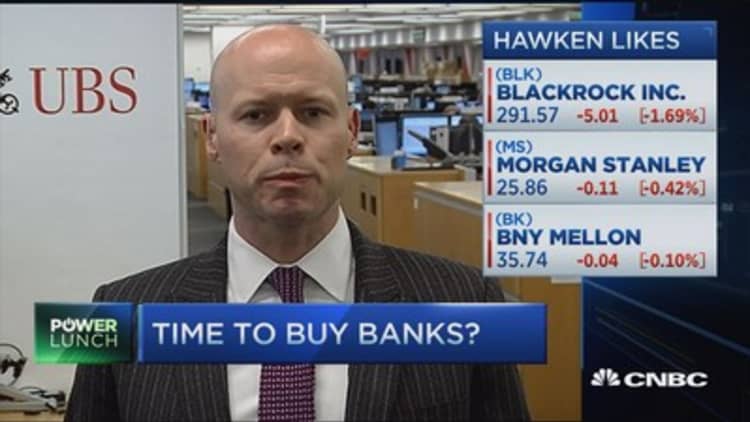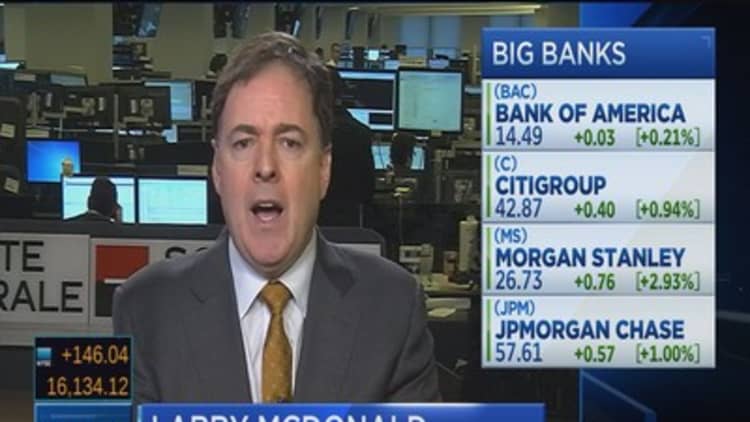


Buying JPMorgan Chase' stock could help investors protect themselves from this volatile market, Brennan Hawken of UBS Investment Bank said Tuesday.
"At this point, there is only one of the bulge-bracket investment banks trading above tangible book value. That's JPMorgan, which has been a little bit of a safe haven to the extent any of these stocks have been safe havens in the market like this," the analyst told CNBC's "Power Lunch."
The biggest U.S. bank by assets reported fourth-quarter earnings per share of $1.32 on revenue of $23.7 billion on Thursday. Analysts expected JPMorgan to post earnings per share of $1.26 on revenue of $22.86 billion, according to a Thomson Reuters consensus estimate.
Read More Big banks continue retreat from mortgages
JPMorgan's stock fell slightly Tuesday.
However, Larry McDonald, managing director and head of the U.S. macro strategy at Societe Generale, said Tuesday he believes U.S. banking stocks face risk from overseas.
"I feel a lot better about U.S. banks today than any period in last five years, but you have to look at credit default swaps on South Africa, Brazil, Petrobras; these things are moving very fast. That's really driving bank price risk in terms of stocks of banks," he told CNBC's "Squawk on the Street."
He also noted that risks from lower oil prices are weighing on the banking sector as well. U.S. crude closed at $28.46 a barrel, its lowest settlement since September 2003.
Read More Banks' falling book value could invite activists
UBS' Hawken, however, said that oil only constitutes a small portion of the books within big banks.
"They're often very, very small portions of the balance sheet. In the example of the money centers, the BofAs, JPMorgans of the world, you're talking about 2, 3 percent of loan books. They're building reserves and holding reasonable amounts of reserves against them. And to a large degree, these are investment-grade credits. They're not really the things you need to be too worried about at this stage," he said.
— CNBC's Tom DiChristopher contributed to this article.


